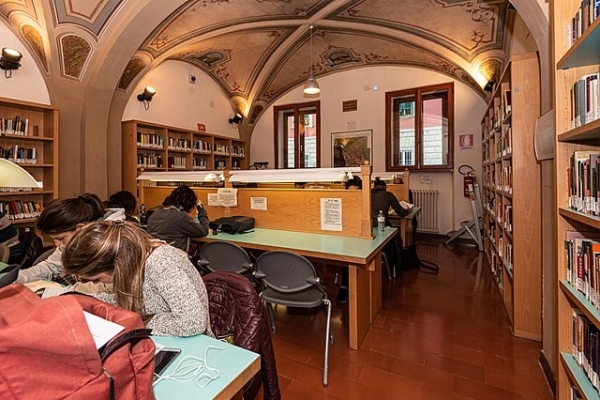http://www.unipi.it/
Description
The Degree Programme in History and Civilisation includes medieval, modern and contemporary history. It contemplates providing with:
-advanced competence on research methods and techniques in the field of historical sciences;
-a good qualification on history in its various aspects, including gender history.
It is contemplated a progressive opening of perspectives beyond Europe and the Mediterranean space.
Graduates of the Programme will be able to demonstrate:
- Advanced knowledge and ability to use the various techniques of historical research;
- Advanced knowledge of the general lines of human history;
- Ability to widen the research field beyond Europe and the Mediterranean Sea;
- Deep knowledge of methods and points of gender history;
- Deep awareness of links between history and civilisation;
- Ability to recognize the specific contribution of political history, social history, economic history towards the knowledge of the past.
Graduates of the Programme “History and Civilisation” can carry out high responsability duties by cultural and publishing industry, as well as by Public record offices, libraries, boards of conservation, cultural centers and foundations. They can also be engaged in research units by private and public boards, either in Italy or abroad.
Access to further studyThe Laurea Magistrale degree in HISTORY AND CIVILISATION allows the graduate to compete for entry into a Third Cycle programme/doctoral school.
Assessment methods, examination regulations, and gradingAssessment is normally by means of an oral or written examination; in some cases there are intermediate exams during the course; other elements (participation in discussion, written or oral reports, commentary of texts etc. ) are foreseen in specific course units and are described in the Course Unit Profiles.
The grading system for the course units consists of 30 possible points, plus 'lode' (cum laude) in case of excellence. Marks are given by the lecturer based on the performance as ascertained in a public examination by a board of at least two teachers. The main exam sessions are held in June/July; September; and January; students may resit exams**. Actual grading curves differ in different degree programmes. The University of Pisa provides an ECTS Grading Table, which shows the actual distribution, of the examination and final grades among students for each degree programme, in order to facilitate the comparison with other grading systems. ---> Link to ECTS Grading Table
An overall mark is given on the occasion of the 'Final Exam', when a written research text is presented and discussed. The final overall mark is calculated based on the results of the marks obtained in the single course units and the final exam, and is based on 110 possible points, with the possible further mention of honours ("lode" or cum laude).
Specific details
University
University of PisaLocation
Lungarno Pacinotti 43, Pisa, 56126, Italy






 How to resolve AdBlock issue?
How to resolve AdBlock issue? 


Comments (0)